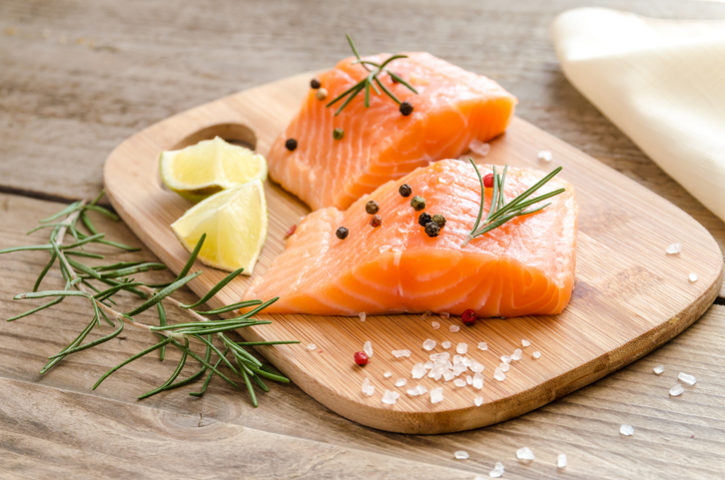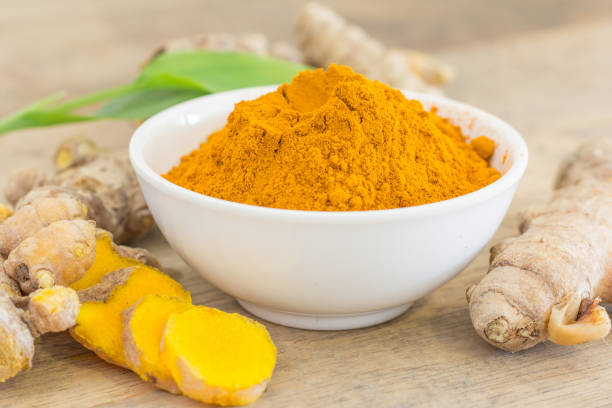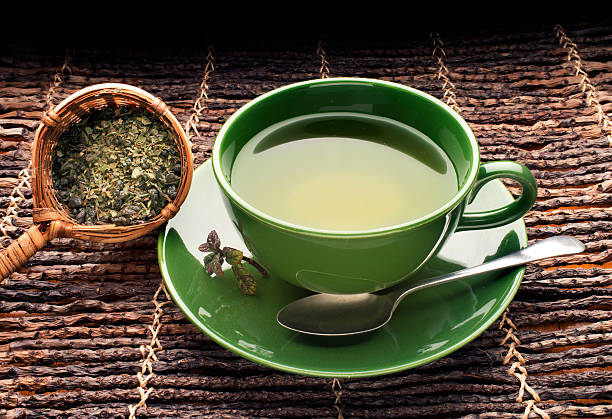
Anxiety is one of the most prevailing mental health conditions, affecting roughly 7.6 percent of the global population. It’s a term used to represent miscellaneous disorders, such as generalized anxiety disorder, social anxiety, and phobias — and is typically characterized by persistent feelings of stress, nervousness, and unease that can interfere with daily life. In many circumstances, medication is often needed as a primary course of treatment. There are also several techniques you can use to help relieve anxiety symptoms including exercising and breathing practices.
Further, some foods you can eat may help sustain brain function and lower the harshness of your symptoms, primarily due to their brain-boosting properties.
Salmon

Salmon may be beneficial for reducing anxiety.
It contains nutrients that promote brain health, including vitamin D and omega-3 fatty acids.
These nutrients may help regulate dopamine and serotonin, which can have soothing and calming properties.
Vitamin D has also been researched for its favorable effects in reducing anxiety and depressive symptoms.
Chamomile

Chamomile is an herb that may help reduce anxiety.
It contains both antioxidant and anti-inflammatory properties, which may help lower inflammation associated with anxiety.
Chamomile is thought to help regulate serotonin, dopamine, and gamma-aminobutyric acid (GABA).
Some investigations have studied the relationship between chamomile extract and anxiety relief.
RELATED: These Foods Make Your Stress & Anxiety WORSE
Turmeric

Turmeric is a spice that contains curcumin, a compound studied for its role in boosting brain health and preventing anxiety disorders.
Known for its high antioxidant and anti-inflammatory properties, curcumin may help stop damage to brain cells related to chronic inflammation and oxidative stress.
Including turmeric in your diet is certainly worth a try.
Dark chocolate

Including some dark chocolate in your diet may also help reduce anxiety. Dark chocolate has plant compounds that act as antioxidants.
These effects may allow you to adapt better to stressful situations that can lead to anxiety and other mood disorders. Some investigators also indicate that dark chocolate’s role in brain health may be due to its taste, which can be pleasant for those with mood disorders.
Yogurt

Yogurt is a great food to include in your diet if you suffer from anxiety.
The probiotics, or healthy bacteria, found in some types of yogurt may enhance several aspects of your well-being, including mental health. In particular, studies suggest healthy gut bacteria may be connected with better mental health.
Also, probiotic foods like yogurt may promote mental health and brain function by reducing inflammation and increasing the production of mood-boosting neurotransmitters, such as serotonin.
RELATED: 11 Natural Remedies For Anxiety
Green tea

Green tea contains L-theanine, an amino acid that’s been examined for the positive effects it may have on brain health and anxiety reduction.
Other foods that relieve anxiety:
- Turkey, bananas, and oats are useful sources of the amino acid tryptophan, converted to serotonin in the body, and may encourage relaxation and anxiety relief.
- Eggs, meat, and dairy products all deliver high-quality protein, including essential amino acids that produce the neurotransmitters dopamine and serotonin, which have the potential to enhance mental health.
- Chia seeds are another excellent source of brain-boosting omega-3 fatty acids, which have been shown to help with anxiety.
- Citrus fruits and bell peppers are rich in vitamin C, which has antioxidant properties that may help decrease inflammation and stop damage to cells that may promote anxiety.
Though these foods may help your mental well-being, they should not substitute any medicines or other therapies prescribed by your healthcare provider.
Conclusion
Anxiety is a complicated mental health disorder that requires many approaches to manage effectively.
Along with medicine and therapy, your diet may help support your mental health, reduce anxiety symptoms, and promote better brain health. In particular, whole, minimally processed foods high in antioxidants appear beneficial.









